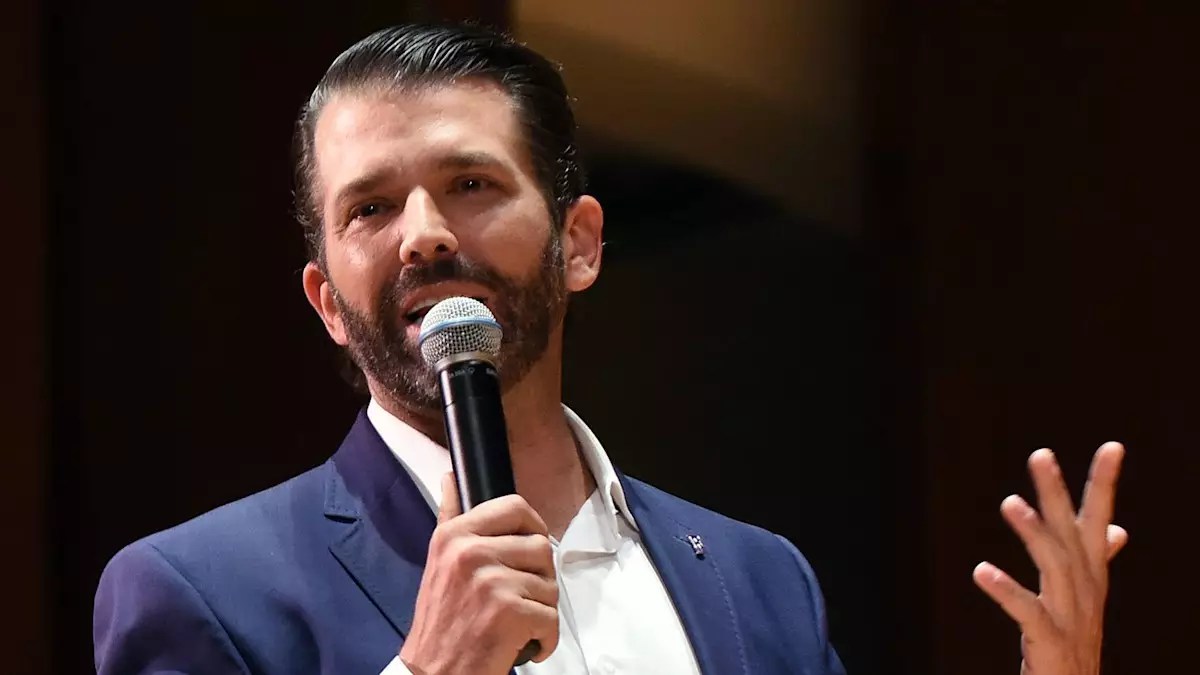The political arena in the United States often serves as a battleground for a barrage of rhetoric and provocative commentary. However, Donald Trump Jr.’s recent reaction to President Joe Biden’s cancer diagnosis has illuminated the darker side of this discourse, revealing a culture of insensitivity that many might find alarming. When Biden’s personal office disclosed that he had been diagnosed with an aggressive form of prostate cancer, Trump Jr. seized the opportunity to cast doubts on the authenticity of Biden’s health report, raising eyebrows not just for his tone but for the sheer lack of empathy amidst a serious personal crisis.
Taking to social media, Trump Jr. wove a narrative of conspiracy suggesting that the First Lady, Dr. Jill Biden, had somehow overlooked significant symptoms of the cancer. His rhetoric, couched in the guise of sarcasm, questioned the competence of someone holding a doctoral degree in education, indicating a troubling misunderstanding of the qualifications and roles of healthcare professionals. It is not just a display of ignorance; it is a chilling commentary on how public figures exploit personal tragedy for political gain, often forsaking basic human decency.
The Sword of Sarcasm and Its Consequences
In dismissing his initial comment as mere sarcasm, Trump Jr. attempted to distance himself from the outrage that ensued. But the damage was already done. For those familiar with the nuances of political discourse, sarcasm is a double-edged sword; it can either highlight absurdity or degrade the conversation into mere mockery. In this instance, Trump Jr.’s attempt at humor fell flat, transforming a moment that should have been marked by empathy into a spectacle of derision. Many people quickly pointed out that rather than being clever, his remarks were callous, reflecting a broader trend where political opponents are dehumanized.
Responses to Trump Jr.’s outburst on social media were swift and unforgiving. Critics were not shy about emphasizing the irony of someone with an inherited fortune critiquing the expertise of others. The backlash illustrated an increasingly impatient public that is tired of seeing political discourse devolve into personal attacks, especially during moments of vulnerability. Trump Jr.’s comments prompted some to highlight the disconnect between an elite political class and the everyday citizen, who may be grappling with their own health challenges.
Illness and Humanity: A Call for Respect
Biden’s diagnosis was met with contrasting reactions across the aisle—the stark difference between Trump Jr.’s flippancy and President Trump’s more measured, albeit generic, response compellingly encapsulates the current political climate. The former President expressed sympathy for Biden and his family, reflecting an understanding that, at the heart of politics, we must remember our shared humanity amid the ideological divides. This is an important reminder that while political rivalry fuels disagreement, compassion should not be extinguished in the fire of partisanship.
As Biden discussed his cancer diagnosis, he resonated with many citizens, stating, “Cancer touches us all.” This simple yet profound acknowledgment serves as a poignant reminder that regardless of political affiliation, we are intertwined in our struggles and vulnerabilities. The camaraderie that can emerge when people share their burdens is often overshadowed by the incendiary dialogues prevalent in today’s political discourse.
A Culture in Need of Reflection
The incident surrounding Trump Jr.’s comments reflects a troubling culture where sarcasm is wielded carelessly as a weapon in political sparring, often at the expense of basic human decency. This is not just about one individual’s bad taste; it represents a broader societal ill where the political discourse has been allowed to cascade into ridicule and insensitivity. In an era where respect is in short supply, it is vital for politicians and public figures to conduct themselves with integrity and empathy, recognizing that words carry weight and can impact lives beyond the political arena.
Ultimately, as society reflects on this incident, it becomes necessary to question: what are the standards we hold our leaders accountable to? In an age defined by constant scrutiny and rapid-fire commentary, the expectation of decorum—especially when discussing sensitive matters such as health—should not just be a lofty ideal, but rather a practiced principle. The responsibility lies with both public figures and their constituents to foster a culture of respect, understanding, and, crucially, humanity.


Leave a Reply